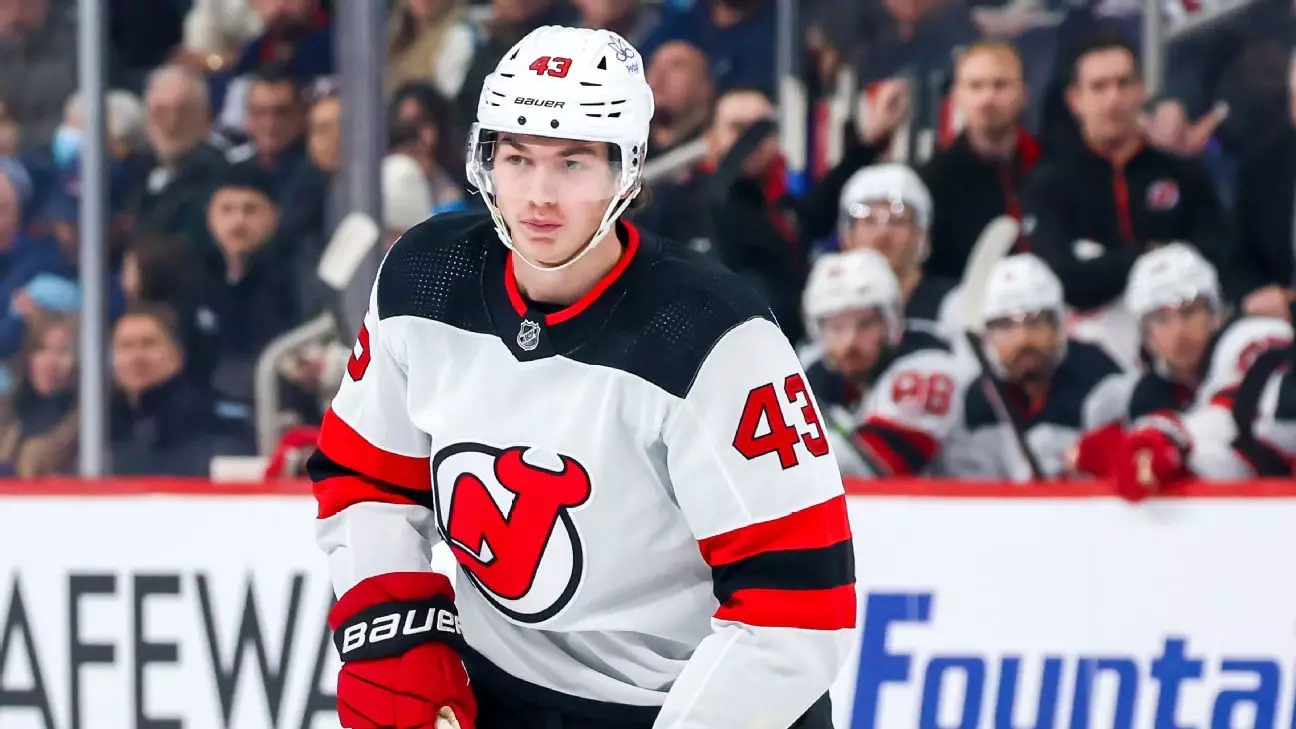In the competitive landscape of the NHL, injuries can significantly disrupt a team’s trajectory. This is the case for the New Jersey Devils, who have recently announced that defenseman Luke Hughes will be sidelined for six to eight weeks due to a left shoulder injury sustained during offseason training. This timeline not only raises concerns about the player’s health but also places the team at a strategic disadvantage as they prepare for the upcoming season. Hughes’s injury came as a shock to both his teammates and fans, given his pivotal role following an impressive rookie season.
Following thorough evaluations by the Devils’ medical staff, it was determined that Hughes would avoid surgery, a fortunate outcome that could have complicated his recovery. While the absence of surgical intervention means a quicker potential return, the estimated recovery period still suggests that he will miss significant time, including the entire preseason and the critical opening games against the Buffalo Sabres in Prague. For a player who demonstrated such promise in his debut season, this setback is disheartening not only for Hughes but for the entire organization.
Hughes is not just any young player; he is recognized as one of the brightest talents in the NHL. His rookie season concluded with commendable stats—six goals and a total of 47 points, while also participating in all 82 games. His remarkable performance earned him a third-place finish in the Calder Trophy voting, competing against names like Connor Bedard and Brock Faber, both formidable players in their own right. Hughes and Faber were the only rookie defensemen to play the full season, underlining the significant role Hughes played within his team dynamics.
With Hughes out, the Devils will need to navigate the early part of the season without one of their most valuable assets. The loss of Hughes could hinder the team’s momentum as they aim to build on last season’s progress. The Devils achieved notable success last year, securing 52 wins and ending a four-year playoff drought, showcasing a potential that they aim to capitalize on in the upcoming season. The question remains: How will they adapt without him on the ice in key moments?
The stakes are notably high for the New Jersey Devils as they enter this new season. With Hughes expected to play a critical role in the team’s postseason ambitions, losing him—even temporarily—places a burden on the coaching staff and remaining players. The Devils have undergone significant changes in their coaching department, recently parting ways with long-time head coach Lindy Ruff and transitioning through interim management before settling on Sheldon Keefe. This shift in leadership coincides with the need to foster team chemistry and consistency, making Hughes’s absence all the more burdensome.
Hughes’s departure from the collegiate ranks at the University of Michigan accelerated expectations, especially given his familial ties to hockey excellence. His brother, Quinn Hughes, serves as the captain for the Vancouver Canucks and holds the prestigious Norris Trophy, recognizing him as the league’s top defenseman. The potential for a similar trajectory has excited fans, who were eager to see Luke Hughes carve out his legacy in the NHL. Missing games early on may hinder that path, forcing Hughes to play catch-up once he reenters the lineup.
As the team gears up for the regular season, the focus will undoubtedly shift to prepare without Hughes while keeping an eye on his recovery. The Devils must find ways to fill the gaps that Hughes’s absence creates, honing their strategies to maximize the strengths of their remaining roster.
Ultimately, Hughes’s journey back to the ice will be closely scrutinized. Successful rehabilitation will be essential not just for his development but also for the overall fortunes of the New Jersey Devils as they strive to replicate last season’s success. The resilience of both the player and the team will be pivotal in overcoming this challenging start to the season, as Hughes aims to make a significant impact upon his return. During his recovery, fans and analysts alike will await updates with hope, anticipating the moment when one of the league’s brightest young stars rejoins the battle on the ice.


Leave a Reply